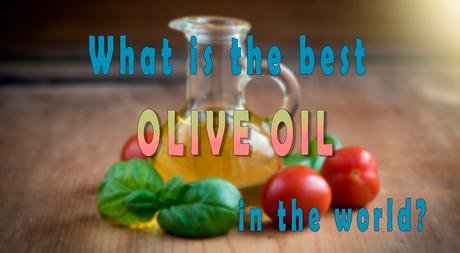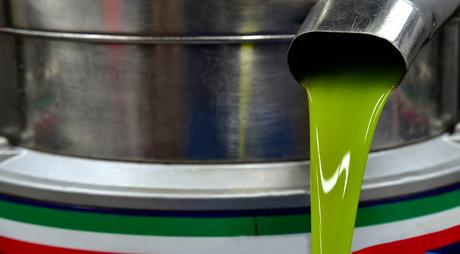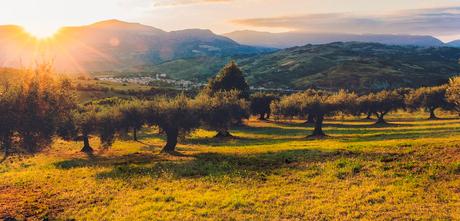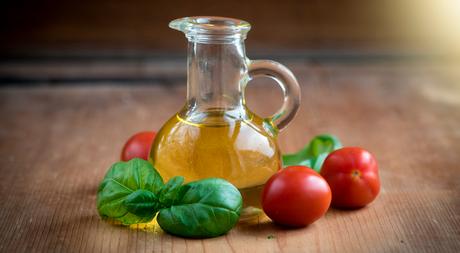
When you travel to countries like France, Greece, Spain or Italy, you might surely want to bring some souvenirs back home. Arrived there, you have a choice: to buy some useless dust catchers or something useful which you can really benefit from, like food stuff from the country you have visited. One of those useful things I always buy when I travel is olive oil. But it can be an inscrutable market out there, and you don’t want to bring some fake stuff with you, right? To avoid this, you might ask yourself what is the best olive oil in the world. Well, this is for sure very subjective but let’s consider it from a less strict point of view. In this article, I’ll give some tips about olive oil you can buy when you travel (or at least online after your journey). And who knows, maybe it will not be the best olive oil in the world for everyone but for you which is more important So read on, folks.
Types of olive oil

To answer the question what is the best olive oil in the world, we need to delve a bit into the types of olive oil first. There are two categories of them – refined olive oil and so-called cold pressed olive oil (also known as native olive oil)
Refined olive oil
Refined olive oil is extracted by adding of heat and chemicals to the pressing process. This method is used to extract more oil than during the cold pressing. Besides to the added heat, the pressing process causes additional warmth (it’s a physical principle). Because of this, the mixture reaches pretty high temperatures up to 100° Celsius. At the end, there is a mixture of olive oil and chemicals like solvents (for example hexane or light gasoline).
After the pressing, the oil is cleansed from the toxic chemicals. I will not explain the whole process as it’s not the topic of this article. One more important thing you should know though, is that the oil is heated for several hours up to 240 ° Celsius for cleaning purposes. This process is called refining and that’s why we speak about refined olive oil or about warm pressed oil.
Is refined olive oil bad?
The answer is clear: No! It rather depends on what you want to do with it. The biggest disadvantage of refined oil is that this method destroys the most vitamins, unsaturated acids and the most aroma of the olive oil as well. Also, it gets an almost neutral taste.
But on the other hand, refined olive oil has the advantage that it can stand higher temperatures and therefore, it’s suitable for frying with hot temperatures which means hotter than 170° Celsius (338° Fahrenheit). A cold pressed olive oil shouldn’t heated up more than 170° – 180° Celsius (338° – 356° Fahrenheit), though.
To sum it up:
- Refined olive oil is extracted by using heat, chemicals, and pressure which destroys important vitamins, taste, and unsaturated acids
- But refined olive oil is not bad at all – it just comes up to your purpose and for frying, refined oil is a great product
- Refined olive oil stands higher temperatures than native olive oil
- You can use refined olive oil when you want to cook dishes by using temperatures higher than 170° Celsius (338° Fahrenheit)
Native olive oil

I assume, when you were googling for “what is the best olive oil in the world”, you were looking for native olive oil. As I mentioned, the native olive oil is also known as a so-called cold pressed olive oil. But it is really cold pressed? To answer this question, let’s take a brief look at this type, before you get the answer for what is the best olive oil in the world.
During the cold pressing, the olive oil is pressed out with high pressure by a hydraulic oil press. During this process, there is also heat generated. But the difference to the refined olive oil lies in the temperature. Cold pressed olive oil may get only 27° Celsius warm (apprx. 80° Fahrenheit), prescribed by law. Up to this temperature, the olive oil contains its quality. The vitamins, the unsaturated acids and the taste is preserved. So as you see, the term cold pressing is a misleading one.
There is also another method of olive oil production which is called cold extraction (in contrast to cold pressing). The cold extraction is a mechanical process in which the oil is extracted in a centrifuge from the olive paste. These centrifuges work much like household juicers, or the spin cycle of a washing machine, where the pulp is “extracted” in fast-moving drums. Cold extraction is the gentler and a more modern process which doesn’t generate heat.
That’s where the term native olive oil comes from. Native means that in olive oil production only proven mechanical processes may be used, such as cold pressing or cold extraction. Therefore, native olive oil is a genuine natural (or organic) product.
There is another term used you maybe heard about: extra native or extra virgin olive oil. Extra stands for the highest quality level among olive oils and means that the oil meets the highest demands on taste and composition. Decisive here is especially the acidity of the olive oil. The less acid in the oil, the better the quality because a high(er) acidity is an indication that the olives were old, overripen or even rotten.
Therefore, native, or extra virgin olive oil should contain maximum 0.8 g / 100 g of acid (apprx. 0.0017 lb / 0.22 lb)
But please note: the term extra virgin oil is not a stand-alone quality criterion. Especially the big producers avertising their brands with this term. But this means in first place that the manufacturers fulfill the legal regulations. More about how to choose good olive oil you will find below in this article.
When should you use native olive oil?
As native olive oil is suitable for temperatures up to 170° Celsius, it’s shouldn’t be used for frying under extreme temperatures. Instead, you should use it for salads and other cold delicacies. But also warm dishes like lasagne or risotto can be prepared with native olive oil. In this case just make sure you don’t overheat the oil.
Are there differences between the countries?

When you think about what is the best olive oil in the world, you might think first about Italian olive oil. But I have to disappoint you, dear friend. Because in this case, the appearances are deceiving. Often, when you travel to Italy and want to buy high-quality olive oil from Italy as a souvenir (or just do some online shopping for olive oil), it can happen you will be fobbed off with a mixture of different olive oils in a single bottle.
The reason for this is that Italy cannot supply the domestic demand for olive oil. Not because they don’t have the resources to produce more. The reason for this situation is that the demand in the overseas markets is growing and growing. Countries like Japan, Brazil, Australia or Canada are consuming olive oil steadily like crazy!
Therefore, the Italian olive oil producers use a legitimated trick. They import a lot of olive oil from Spain and bottle it in Italy with a bit of domestic Italian olive oil. This trick works because Spain is the biggest olive oil producer in the world. Italy and Greece are sharing the second and third places, and change it from time to time.
Don’t get me wrong; Spanish olive oil has a very good quality. But nevertheless, it’s still not as good as the Italian olive oil. And of course, it cannot be as great as Greek oil because olives like a lot of sun. And the sunniest days in the cultivation areas you will usually get in Greece.
So what is the best olive oil in the world?

Now we are approaching to the answer. If you ask me, there is no real objective answer for the question what is the best olive oil in the world. The reason for it is that there are too many producers, too many cultivation areas, too many different tastes and tricks used by the producers.
But as I mentioned, to get the best olive oil, you need perfect weather conditions with a lot of sunny days. Empirically, on the Greek island Crete, there are the sunniest days in the whole Europe. Therefore, Greece is just a perfect place for olive trees and that’s why Greek olive oil is my favorite.
But true Italian, Spanish or French olive oil is a real great product too, folks. Especially the French olive oil is a rare piece. For example, in Germany, you will barely find French olive oil in a typical super market but only in selected delicatessen shops or online. Some Spanish producers also producing exclusive products which are also worth to try.
Some other “hidden champions” amongst olive oils come from countries like Turkey, Lebanon and Portugal. But as I don’t have scientifical data about this, I just pass the information I got when I was conversating with other olive oil lovers.
Due to different cultivation areas and different olive varieties, the taste of olive oil is also different. That’s why I can just repeat that olive oil is a science for itself and you can compare it with the “science” of wine.
Criteria to choose the best native olive oil for you
When you travel in the Mediterranean countries and you would like to buy high-quality olive oil, you should look for these criteria:
- Buy your olive oil from small manufactures and not in the supermarket. Those are producing the olive oil traditionally, and they do it with a real passion for the product
- Look for extra virgin olive oil. But please note: don’t take this criterion alone because especially the big producers avertising with the term “extra virgin oil”.
- Look for acidity of maximum 0.8 g / 100 g of acid (apprx. 0.0017 lb / 0.22 lb). But don’t rely just one acidity. Taken alone, it’s not a valid criterion for high quality
- Look for olive oil from one single type instead of a mix of different olive oil types in a single bottle. For this, check the label on the bottle or canister.
- Don’t rely on awards or prizes. Like wine, olive oil is a matter of taste. No award will tell you if you like an olive oil. Of course, awards can be an indication of a good olive oil, but you should never buy an olive oil just because of its name “test winner”. By the way, those “awards” and “best test results” can also easily be bought…
- Look for olive oil in dark bottles or other containers the sunlight cannot enter
But if you would like to go deeper into the taste of olive oil, you will have to try it. One possibility to do this is to get an olive oil tasting. Just look around your area if there are good merchants offering this. But just in case you would like to travel to Greece, I can recommend you to book an olive oil tasting “on location”. For what can be better than do some olive oil tasting in a country where olive oil is as important as to breathe? Check it out:
Olive oil you can buy online

I tried a lot of olive oil during my travels in Mediterranean countries. And of course, I bought olive oil as a souvenir. Back home, I didn’t want miss this great product after I finished it and therefore, I did a lot of researches to find high quality olive oil available online. Therefore, I’d like to show you some really great products I found.
But of course, the introduced producers and suppliers are just my favorites. You can choose any other suppliers as long as they provide great olive oil you can select by the criteria in this article, folks.
Mihelakis Kolymvari – a product from Greece. Kolymvari is a small town in the northwest of the Greek island of Crete with a protected designation of origin for olive oil. The Mihelakis family has been producing excellent extra virgin olive oil since 1980 made from the famous Koroneiki olive tree. Check it out here*
Shipment: deliverable within the European Union and the UK
Finca la Torre One – exceptionally a producer from Spain and not from Greece, folks. The brand Finca la Torre One is one of the most exclusive olive oils available on the market. The special thing about this ecologically produced olive oil is that gets produced at the same day it was harvested. The olive variety is the Spanish type called Hojiblanca and it’s produced in Spanish Antequera, Málaga.
The taste of this olive oil is medium fruity with nuances of freshly cut grass and olive leaves. Balanced bitter and spicy on the palate. Check it out here*
Shipment: deliverable within the European Union and the UK
Jordan Olivenöl – no, it’s not from Jordan, folks. It’s a German family which was touring on the Greek island Lesbos in the 1970’s. From the love for Lesbos and the people there, family Jordan settled down at this Greek island in the year 1989. On their property, they saw some old olive trees which have inspired them to deal with the product olive and olive oil. That’s how the company “Jordan Olivenöl” (engl: Jordan olive oil) was originally established.
Long story short: Today, Jordan family is one of the largest German olive oil suppliers which sells home-made Greek olive oil from olive groves of Lesbos. Their olive oil has a mild and fruity taste. Check this product here*
Shipment: deliverable within the European Union and the UK
Okay, folks. That’s it. I hope, you could find the answer for the question what is the best olive oil in the world and I wish you to enjoy this great product. In case you would like to travel to Greece, I can recommend you to do an olive oil tasting. You can only profit from this experience, folks.
*Affiliate link: when you click on this link, no additional costs would arise for you and the product or the service will not become more expensive. When you decide to buy the product or use the service, I’ll get a little benefit from the provider which I would reinvest to keep this blog alive.
